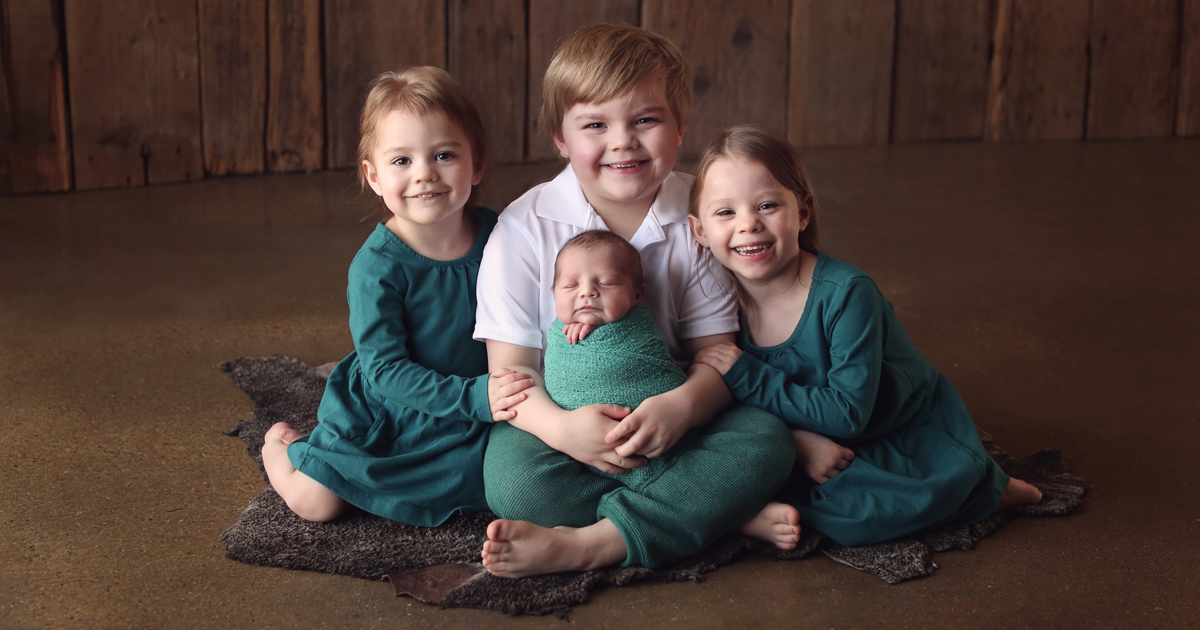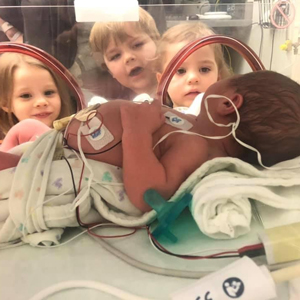Pregnancy, breastfeeding and mental health medications: One new mom’s story

"Everything was normal – except for the birth."
Monica Eary's first baby was positioned sunny side up, meaning his skull was against her tailbone. Her tailbone broke, and Monica was left to deal with the aftermath.
Her doctors weren't much help. "They gave me ibuprofen for my broken tailbone and told me it was normal to be in a lot of pain after having a baby," she recalls. "But I could hardly sit up because the pain was so bad. They dismissed me, so I dismissed myself."

Caring for her newborn son, Miles, while having near-constant pain was extremely difficult. "I couldn't move, I couldn't leave the house and I couldn't function at night," Monica says. She scored high on a screening test for postpartum depression and was given a list of private providers who couldn't get her in for two months.
"I was so afraid," she says. "I feel like I missed out on the experience of being a new mom with my firstborn because it was taken from me. I should have had physical therapy and actual treatment."
Monica started taking antidepressants and ADHD medications, which were a huge help. But she was scared to have another baby after such a painful experience. Luckily, her tailbone didn't break during the birth of her second child, Nora, which was such a relief. "I felt like I could do cartwheels. I realized that was how it was supposed to feel," she says.
Then Monica had her third child, Isla. When Monica chose to breastfeed Isla, her doctor wanted her to stop taking her ADHD medication. "Immediately my life just fell apart," Monica says. "I was never able to get answers about whether I could take it or not. I felt like I had to choose between breastfeeding or being a functioning person."
When she was pregnant with her fourth child, she again was told to stop taking her ADHD medication. At 18 weeks they discovered her baby had a diaphragmatic hernia. They lost their son at 23 weeks. The traumatic experience put Monica into a tailspin.
During her fifth pregnancy, she told her husband Jacob she needed to get back on medication. She met with the Nebraska Medicine obstetrics team, who understood the severity of the situation. They referred her to reproductive psychiatry nurse practitioner Leigh Cook, APRN-NP, who saw her within the week.
New clinic for moms, by moms

Monica's experience with her new psychiatric provider was completely different. "For the first time, I felt like someone was actually listening to me," says Monica. "I never clicked with or felt heard by a doctor before I saw her. Leigh was incredibly validating."
Cook also provided a more thoughtful perspective. "Often, the benefits of a mental health medication outweigh its risks," says Cook. "Additionally, there are risks to a pregnancy when a woman experiences untreated mental health conditions." A trained mental health practitioner must evaluate each situation on an individual basis, ensuring that women who need support can get it.
Monica started taking antidepressants again. The rest of the pregnancy went much more smoothly because of her medications. She had a healthy "rainbow" baby – a baby born after the loss of a child – and named him Theodore.
Theodore was in the Newborn Intensive Care Unit (NICU) for a few days but went home safe and sound.
Monica says she never felt rushed with Cook. "There was always enough time to talk. I felt really comfortable, like Leigh understood me. She got it."
The Reproductive Psychiatry team is the only clinic in the region specifically focused on women's health before and after childbirth. "All of the members of our team are mothers," says Cook. "We can identify with the challenges of being a new mom because we've been there too. We can also share what's worked for us." Cook also had two children in the NICU.
How to support new moms
"It's hard for moms to take any time to focus on themselves. We see a lot of new moms who go into survival mode for several months," says Cook. "Then they finally take a deep breath and realize that their mental health is not great."
Monica advises new moms to trust themselves. "If something feels like it's not right, it's probably not."
"We have to be better listeners," says Cook. "Support systems for new moms are so important. It's already hard for women to ask for help. So if someone is having a hard time, listen to their concerns. Take them seriously. Don't dismiss their pain."
Being seen by the Nebraska Medicine Reproductive Psychiatry team doesn't require a referral from your primary care doctor. You can call 800.922.0000 to get help from a compassionate reproductive psychiatrist.





